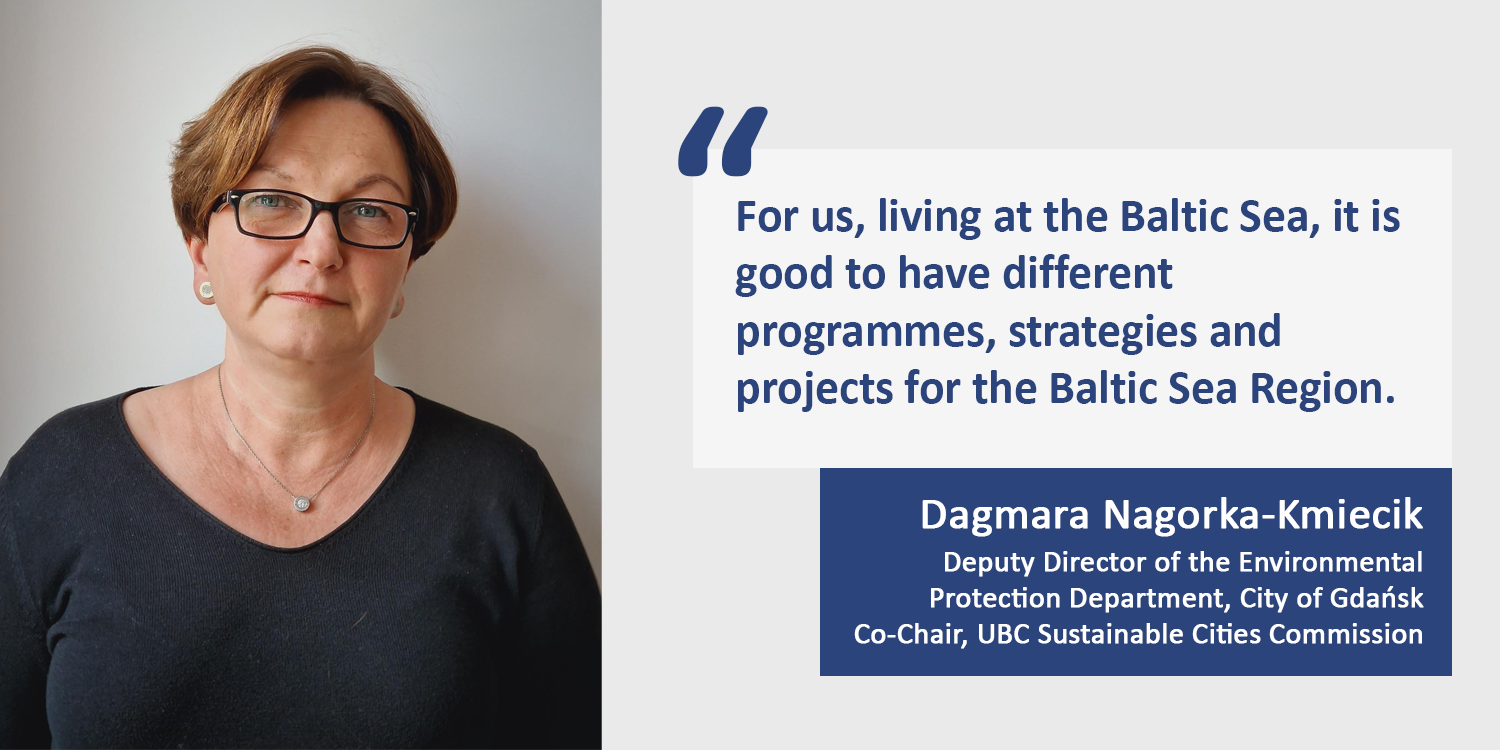UBC SCC: We have recently published the new UBC Sustainability Action Programme 2030 mapping the vision for our member cities in sustainability topics. Why is it important for UBC member cities, and how can cities use this Programme in their work?
Dagmara Nagorka-Kmiecik: There are many documents describing sustainable development. We can read there what it means, how it is present in all environmental, economic and political spheres of our life. We can find there the instructions and guidelines to follow, and to include in our policies. We have some general policies to transform at the local level and to implement in our everyday activities. The UBC Sustainability Action Programme 2030 is a kind of such guidance for UBC member cities.
Being the part of the UBC family we face similar problems and we have common needs. This document shows us what we can do together to strength sustainable development (SD) in our region. It shows the important topics for us (it is focused on 5 topics and is linked with relevant UN SDGs) and gives us new possibilities of co-operation. If we take seriously the need ’to think global and act local’ that is a good instruction for our activity in these 5 sustainable fields. Each SD goal is important and should be implemented in all countries and cities.
It is good to have different programmes because it is difficult to focus on all environmental aspects in just one. So I think that for us, living at the Baltic sea, it is good to have different programmes, strategies and projects for the Baltic Sea Region.
UBC SCC: Could you tell us more about the Gdańsk’s city strategy in relation to sustainability? What are the main goals and the means of achieving them?
Dagmara Nagorka-Kmiecik: The sustainable development-related activities have been implemented in Gdańsk since the Aalborg Charter (1994). The city adopted SD plan which has been consequently implemented. Of course, our goals were different during these years, so the programme included different goals at different stages of its implementation. In the early 90s we had to solve problems related to water and sewage management. Then we needed more ecological education, programme and activities to reduce air pollution, waste management, etc.
At present the main goals for us are related to climate changes. We want to be active in this field and to decrease the negative impact of climate changes.
The main Gdańsk’s strategies that are related to sustainability are:
- Gdańsk 2030 Plus Development Strategy
- The adaptation plan of the City of Gdańsk to climate change up to 2030
UBC SCC: The UBC Sustainability Action Programme 2030 is focused on five core topics: water, mobility, resource-efficiency, energy and biodiversity. Which of these are seen most important for the City of Gdańsk to develop further in the coming years, and are there any specific climate-related challenges observed in the city that need addressing?
Dagmara Nagorka-Kmiecik: All of the topics are important for Gdańsk and are part of the city development strategy. Thanks to our location – at the Baltic sea – water-related issues are important for us. Retention and water management need to be improved and developed.
Considering the rising level of the Baltic sea and the threats of flood, the biggest climate-related challenge is to build a storm gate on the Gdańsk Bay.
UBC SCC: How does the city monitor and report on the climate progress? Does Gdańsk participate in any regional or global reporting systems?
Dagmara Nagorka-Kmiecik: Of course, Gdańsk monitors progress of all adopted plans. Our activities are monitored and evaluated on regular basis and are reported once a year. Monitoring is a very important part of the strategy implementation because it can show the need for a change in priorities. We cannot base on once defined needs and goals. If we change one aspect, the next, previously defined, may occur less or more important. We need to be flexible in our activities. As for the global reporting systems we participate in CDP-ICLEI Questionnaire.
